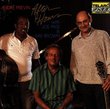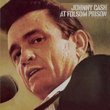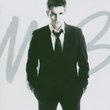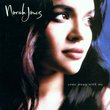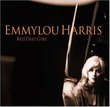| All Artists: Sergei Rachmaninov Title: Sergei Rachmaninoff - Great Pianists of the 20th Century Members Wishing: 1 Total Copies: 0 Label: Philips Release Date: 11/10/1998 Genres: Dance & Electronic, Pop, Classical Styles: Vocal Pop, Opera & Classical Vocal, Ballets & Dances, Polkas, Waltzes, Chamber Music, Forms & Genres, Ballads, Sonatas, Historical Periods, Classical (c.1770-1830), Modern, 20th, & 21st Century Number of Discs: 2 SwapaCD Credits: 2 UPC: 028945694320 |
Search - Sergei Rachmaninov :: Sergei Rachmaninoff - Great Pianists of the 20th Century
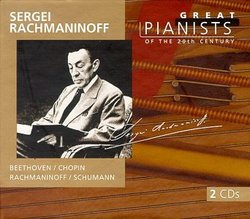 | Sergei Rachmaninov Sergei Rachmaninoff - Great Pianists of the 20th Century Genres: Dance & Electronic, Pop, Classical
The commercial success of the Rachmaninoff disc A Window in Time defied the odds and became a chart topper: here were recordings not of the great pianist-composer but of his piano rolls. Only problem: they were just piano... more » |
Larger Image |
CD DetailsSynopsis
Amazon.com The commercial success of the Rachmaninoff disc A Window in Time defied the odds and became a chart topper: here were recordings not of the great pianist-composer but of his piano rolls. Only problem: they were just piano rolls. By contrast, these discs (part of Philips's comprehensive Great Pianists series) offer an affordable chance to hear the real Rach in action, and they're not to be missed. The composer's big hands tackle Chopin's Funeral March Sonata with a sobering grace and power that still sound timeless. Schumann's Carnival, despite low fidelity, is breathtaking in Rachmaninoff's colorful hands. Hearing the composer play his own works on disc 2 is a revelation: his style is neither flashy nor subdued. Oriental Sketch is expressive and rollicking but never overdone. The sound quality on these recordings ranges from fair to good (surface noise is always apparent), but to fans of Rachmaninoff (and great piano playing), a little hiss can be easily ignored. These recordings have a ton of character and life. --Jason Verlinde Similarly Requested CDs
|
CD ReviewsA Mild Disagreement Donald C. Allen | Carlisle, MA USA | 12/30/2000 (5 out of 5 stars) "I just want to enter my mild disagreement with the "Music Fan from Pittsburgh", whose less than total endorsement of this recording might put off some folks, even though the reviewer did recommend it. These performances of Carnaval and the Chopin Sonata are two of the most astonishing piano performances I have ever heard, and I've been a student of the piano and pianists for well over 50 years now. Yes, Rubinstein's Scherzi are also essential; I'm not so sure about Pollini's Sonata (fabulous pianism that just leaves me cold). Rachmaninoff is in that rarified category of the 5 or 10 greatest pianists of the 20th century, and like each of them, he was absolutely unique. Anyone who wants to collect the work of the greatest pianists needs to have every note that Rachmaninoff recorded." THE REAL RACHMANINOFF Hank Drake | 09/07/1999 (5 out of 5 stars) "I would add to the reviews below only the comment that these recordings are the *real* Rachmaninoff; the deadly computerized ennui of the "A Window in Time" CDs is the diametrical opposite of the sense of joy, alertness, colorfulness, and liveliness found on his *actual recordings*. These actual recordings capture the *genuine* dynamic range and expressiveness of Rachmaninoff's playing, because they are recordings of the *sound* of his playing. The piano rolls, by contrast, are not recordings of sound waves but of when and where he punched the keys of a player piano, transferred to a Bosendorfer by a computer and recorded from that. Moreover, Rachmaninoff performed on and preferred Steinways. The electrical Bosendorfer of "A Window in Time" sounds little better than a starter-level Casio synthesizer: terribly limited dynamic range, each note sounds much like the last, and personality or emotion is simply not to be found. If you want the opposite of bland and monochromatic when it comes to music, and particularly when it comes to Rachmaninoff, then get his own recordings. By the way, when he said of his piano roll recordings, "I have just heard myself play," Rachmaninoff was referring to playback on a pneumatic Ampico, a far cry from the computerized, all-smooth-edges, no-excitement Bosendorfer/Casio." Rachmaninoff as only he could play Hank Drake | Cleveland, OH United States | 03/23/2000 (5 out of 5 stars) "The Window in Time CDs (which stem from computerized piano rolls) are wonderful in their way, but one should not be without at least this 2CD sampler of Rachmaninoff's best solo recordings. The Schumann Carnaval remains the single greatest performance of this quixotic piece ever recorded. The Chopin Sonata, Op. 35 may not be "by the book" enough for modern tastes, but remains a shattering performance, one feels destroyed after hearing it. Rachmaninoff is, naturally, peerless in his own solo works. Incidentally, not all of these pieces were recorded on Steinway pianos. Despite what historical revisionists and Steinway propagandists may assert, Rachmaninoff's favorite piano was the Mason & Hamlin Model CC. (His first, acoustical, recording of his own Second Piano Concerto was made using a Mason & Hamlin.) Unfortunately, Masons were in short supply by the time many of these recordings were made, and Rachmaninoff, like many other pianists, was compelled to use Steinways in most concert halls.
Some of Rachmaninoff's earliest recordings were made on an upright! Whatever piano he used, Rachmaninoff made it sound great." |

 Track Listings (33) - Disc #1
Track Listings (33) - Disc #1
